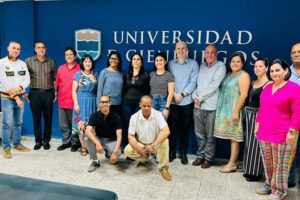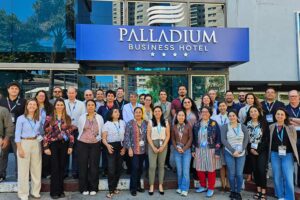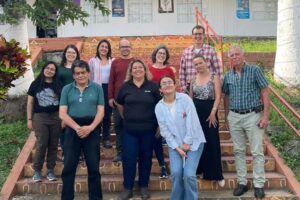CATIE participates in the validation of a climate resilience simulator together with the German Sparkassenstiftung Foundation
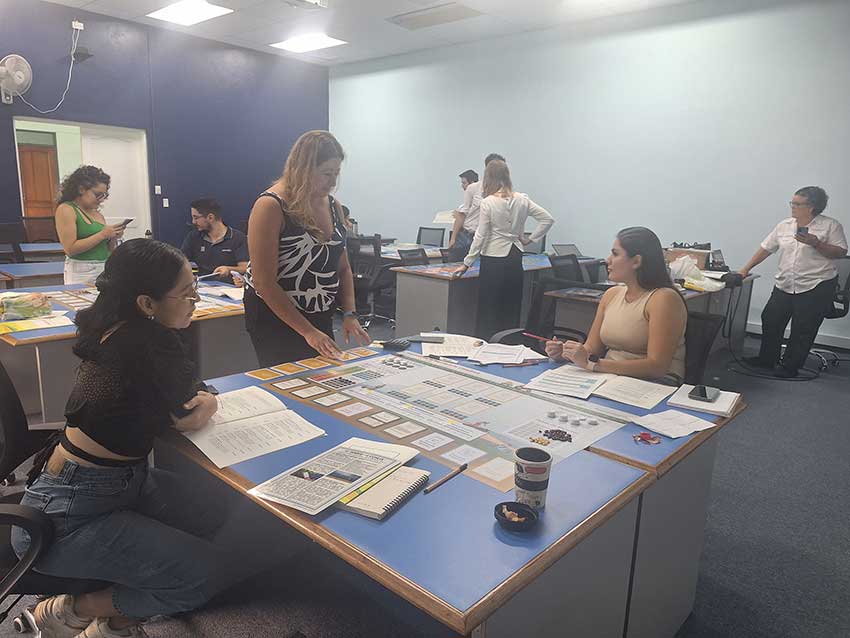
- Educational tool aims to strengthen decision-making on farms and in rural enterprises in the face of climate change
face of climate change Technical staff from CATIE (Tropical Agricultural Research and Higher Education Center) participated on July 3 and 4 in the validation workshop of the Climate Resilience Simulator for Agricultural Operations, an interactive tool designed to improve climate risk management in the agricultural sector. The activity took place on the Center’s campus and is part of the collaboration with the German Sparkassenstiftung Foundation (DSK).
The simulator, developed by DSK, functions as a knowledge transfer module based on the simulation of real scenarios. Through teamwork, participants analyze, reflect, and make strategic decisions that affect the development of a farm or rural business, learning in the process about climate change, adaptation, and risk management.
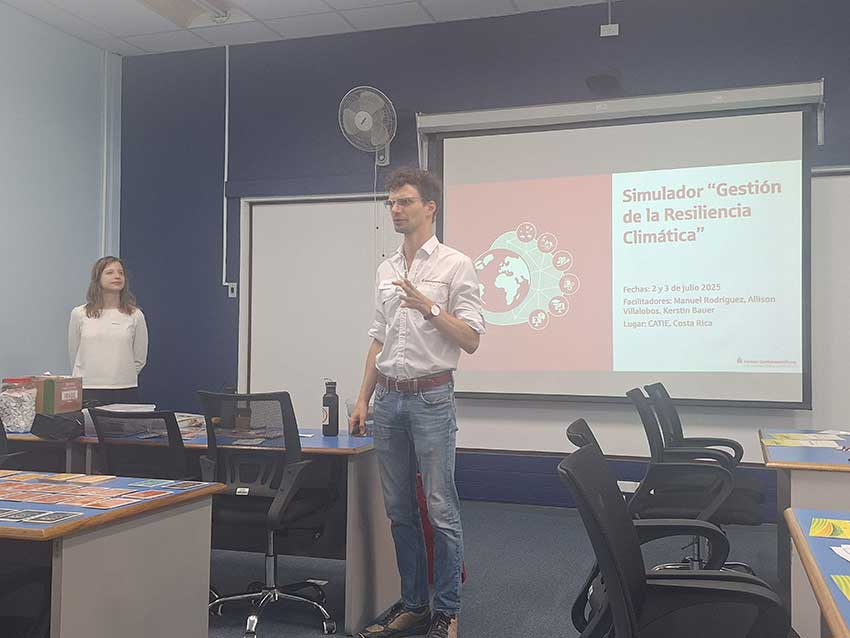
The workshop was facilitated by Manuel Rodríguez, DSK representative in Costa Rica and Deputy Director of the project "Sustainable transformation of the financial sector as a catalyst for climate change adaptation and risk management in Latin America," along with Allison Villalobos, sustainable finance advisor at the institution.
Strengthening capacities for climate action
CATIE’s participation in this validation stems from a consolidated alliance since 2024 between the Environmental Economics and Sustainable Agribusiness Unit (UEAAS/EFD) and DSK, which has included joint training processes in Mexico and a prominent intervention at AGROMIRA 2025 with the workshop “The ABCs of Sustainable Finance.”
During the workshop, participants:
- Acquired key knowledge about climate change from an applied perspective.
- Explored adaptation opportunities for agricultural systems.
- Learned techniques for risk management in vulnerable contexts.
The simulator was described as a dynamic, effective, and highly motivating tool for knowledge transfer.
The workshop included participation from CATIE technical staff from the UEAAS, the Watershed Management Unit, and students from the Master’s in Forests and Natural Resource Management.
Laura Benegas, Director of Research for Inclusive Green Development at CATIE, emphasized the potential of this type of methodology to strengthen institutional work and open new avenues for collaboration. “These kinds of tools have high educational value and can be applied in various areas of the work we do at CATIE,” she stated.
At the close of the event, a feedback session was held on the tool, and initial agreements were made to continue strengthening this strategic alliance. “In the coming days, we will move forward with new joint actions,” reported Evelyn Chaves from UEAAS.
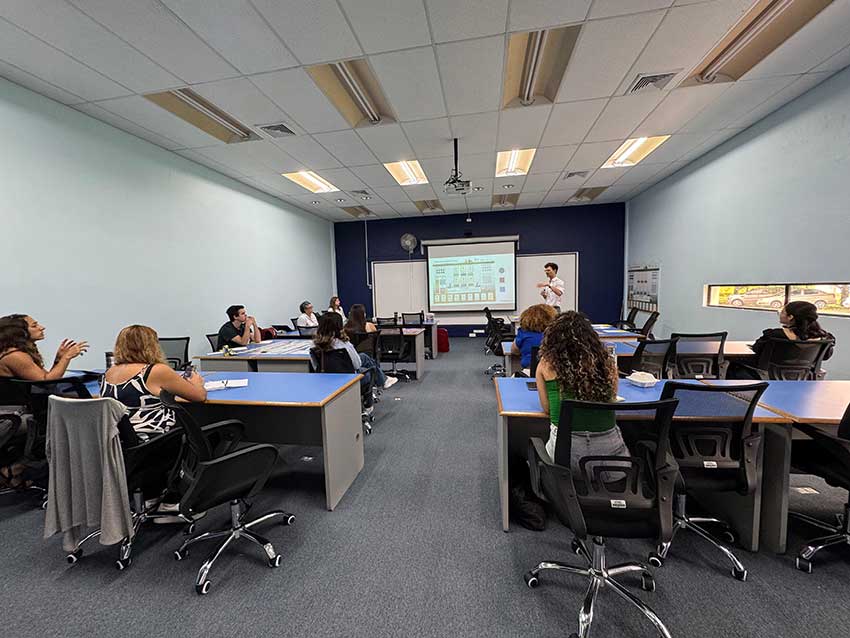
More information:
Evelyn Chaves
Researcher
Environmental Economics and Sustainable Agribusiness Unit (UEAAS/EFD)
CATIE
Evelyn.Chaves@catie.ac.cr
Written by:
Karla Salazar Leiva
Communicator
Communications and Marketing Office
CATIE
karla.salazar@catie.ac.cr

